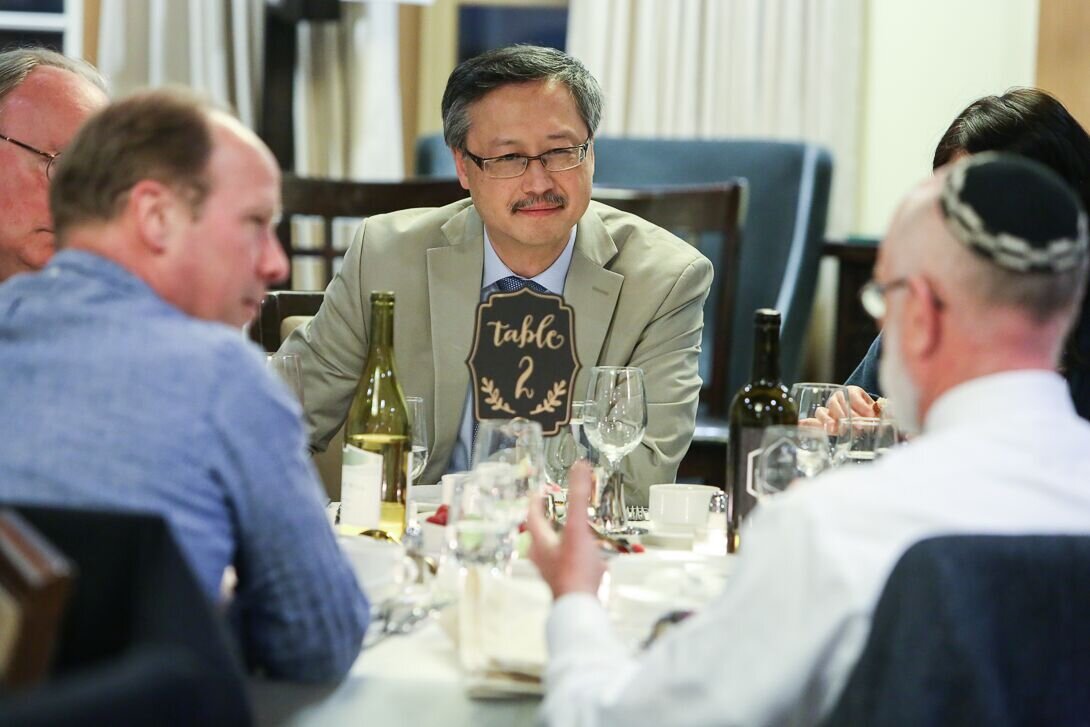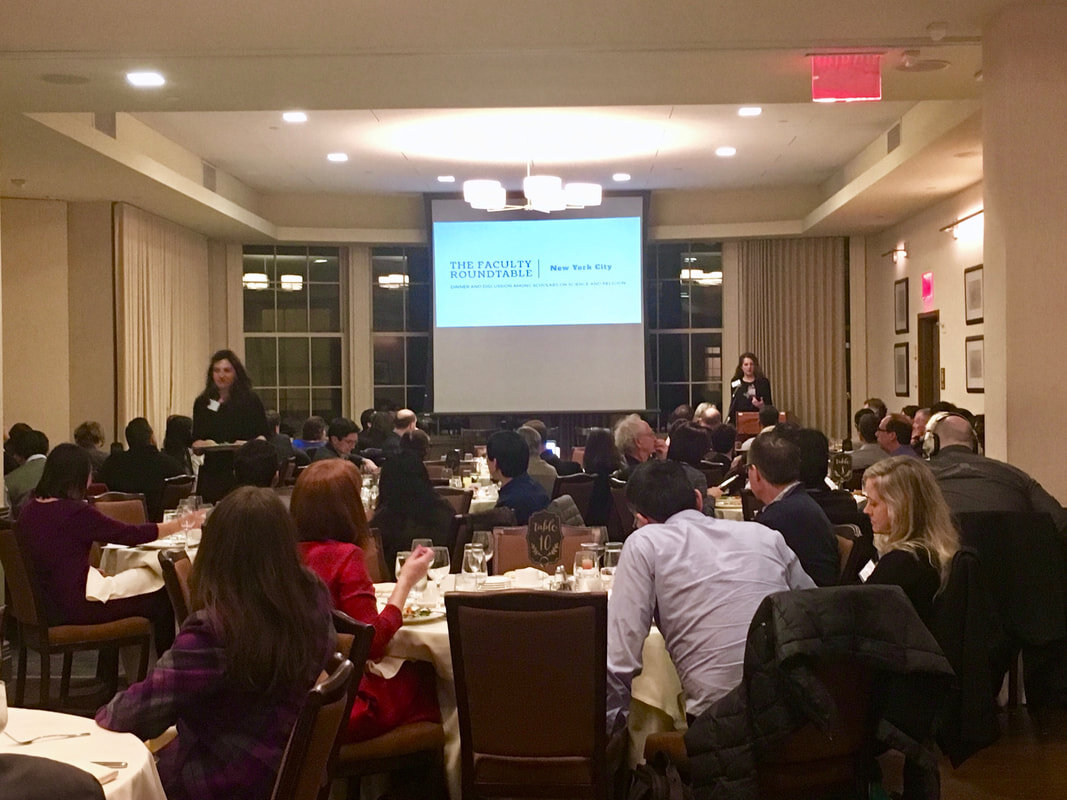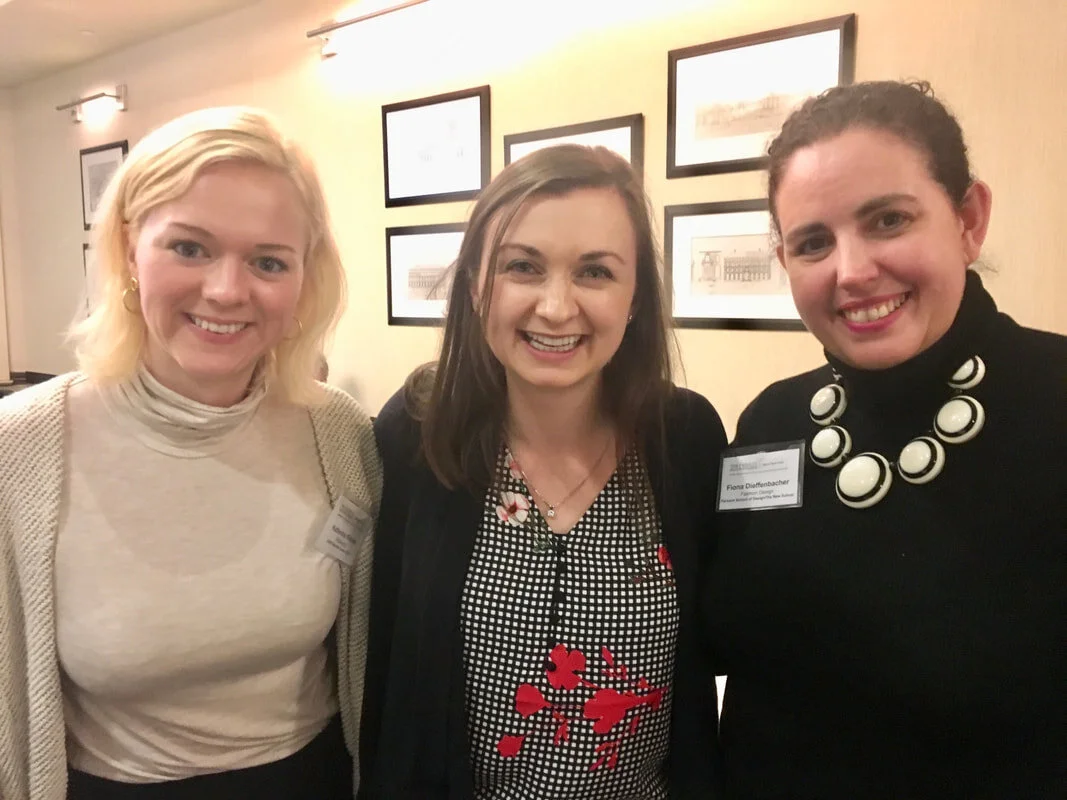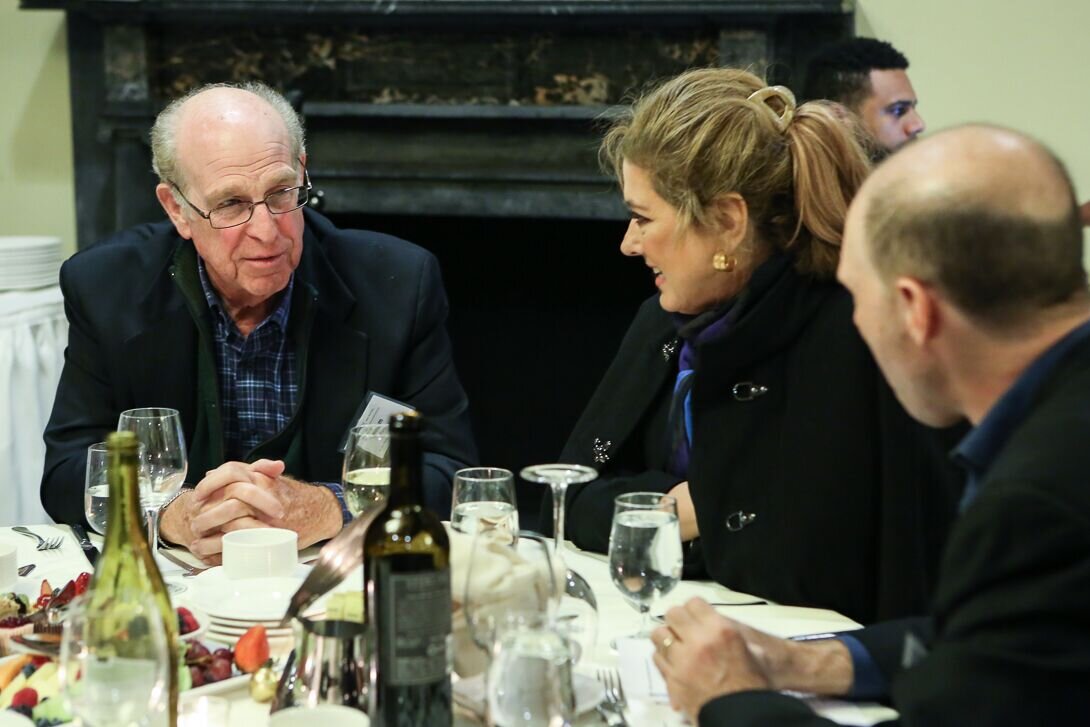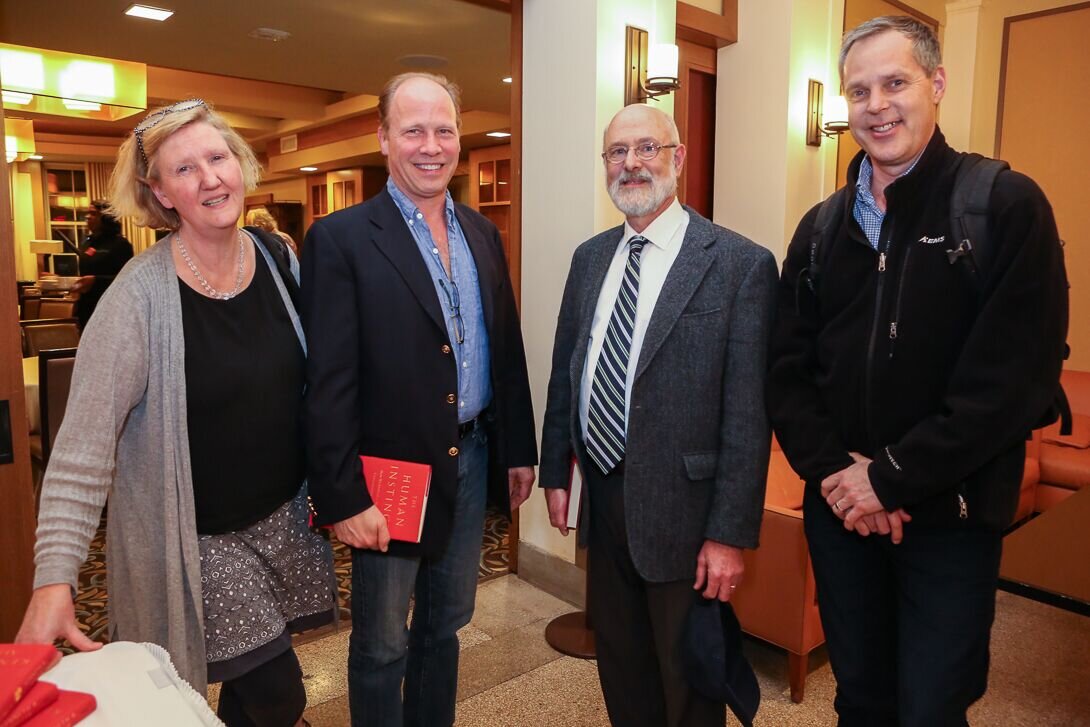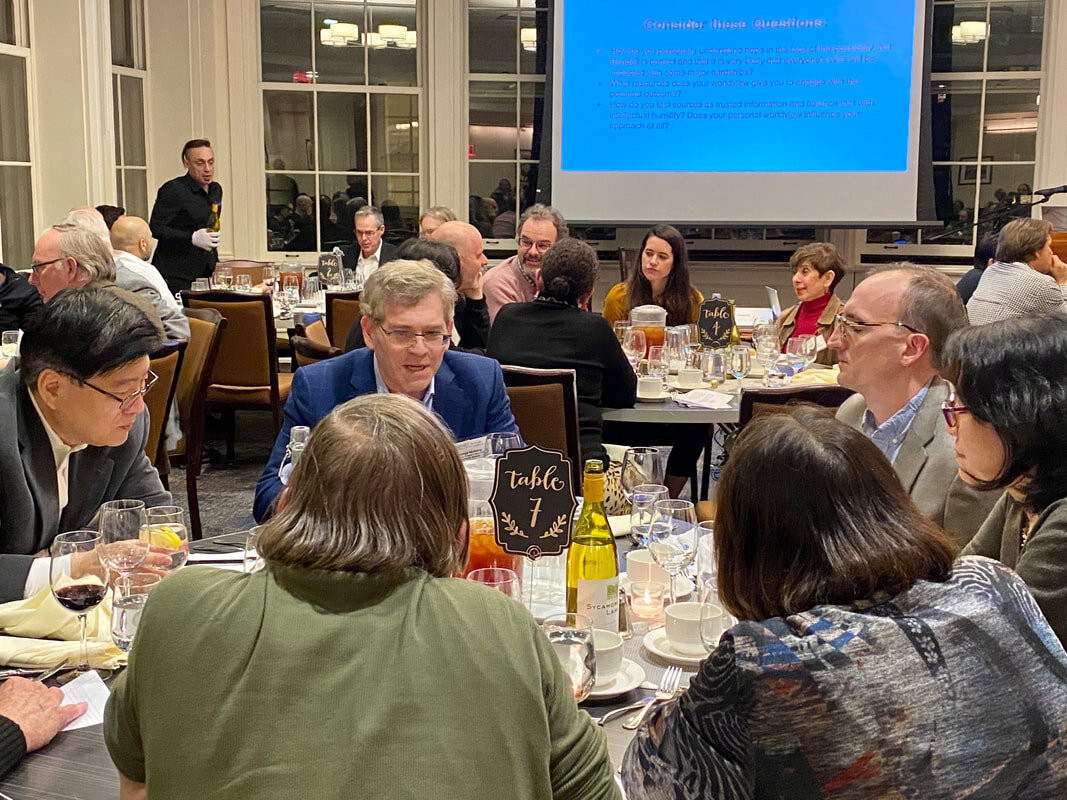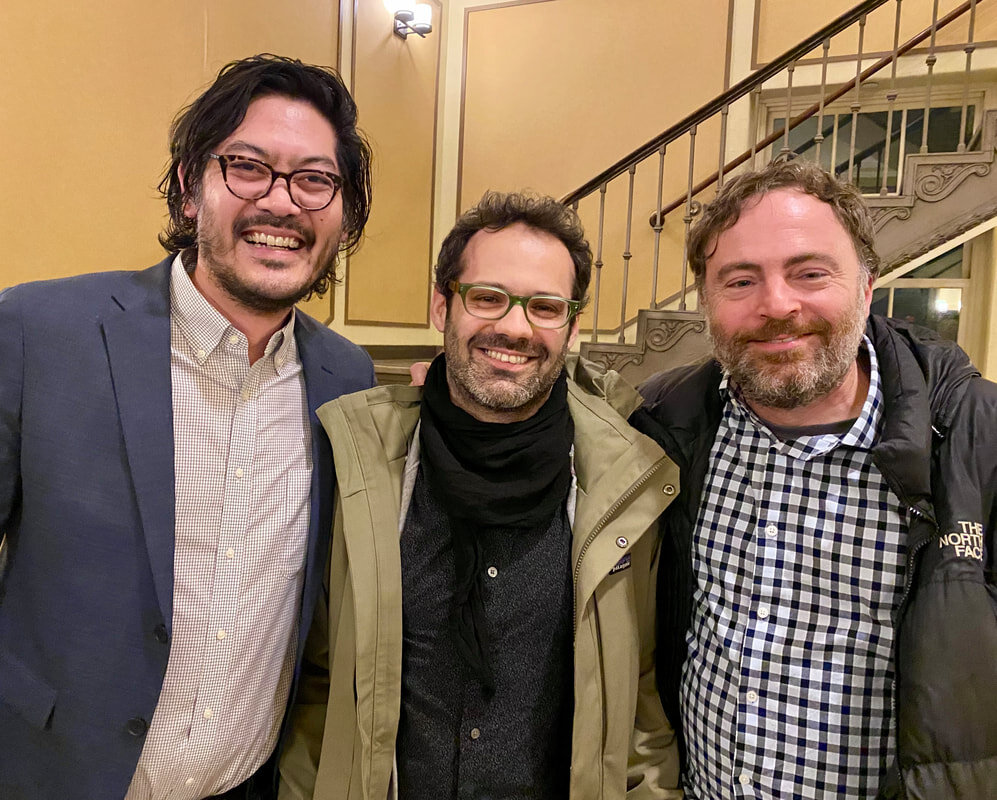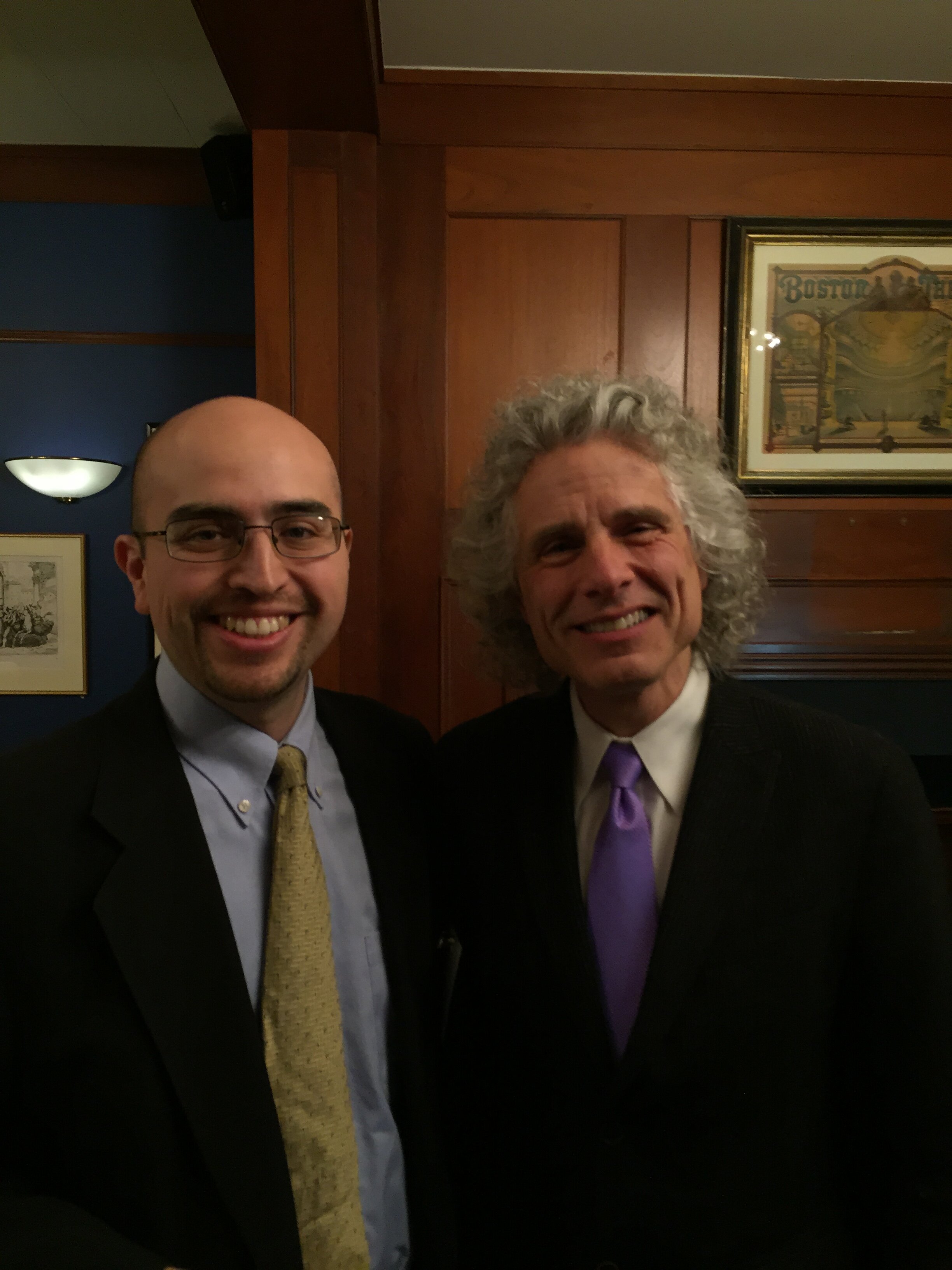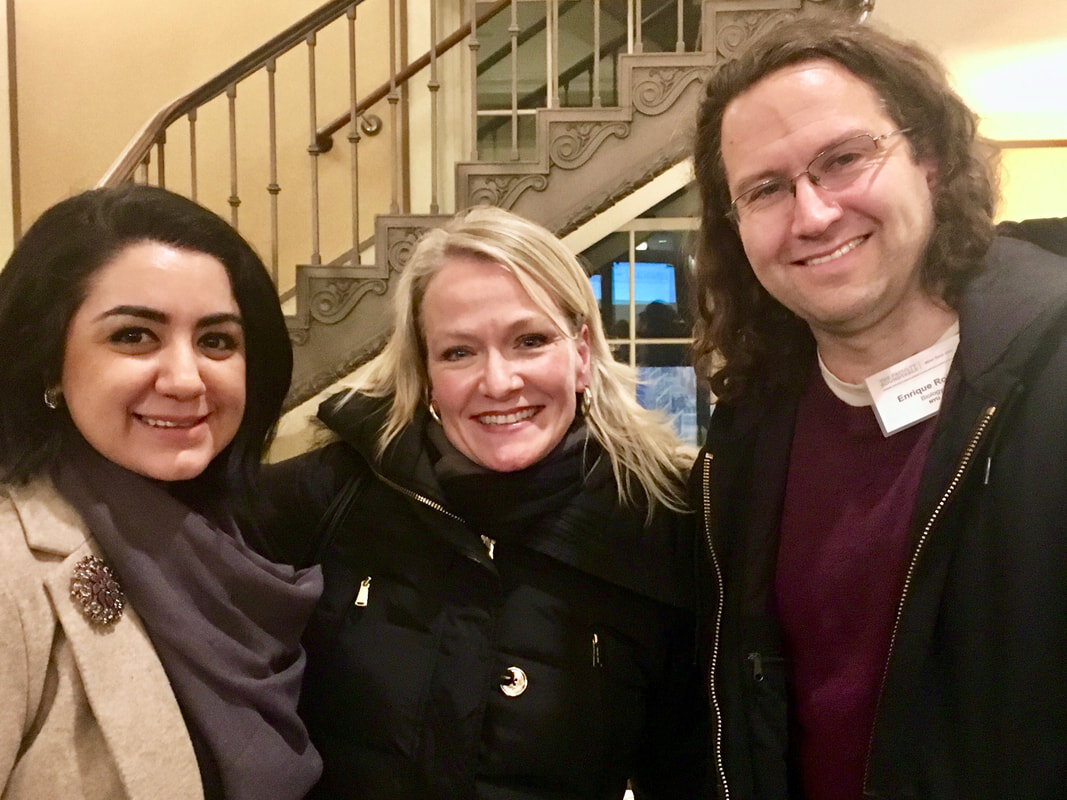A.I., Religion, & Humanity
_______
Wednesday, January 19 AT 6:00 PM CT / 7:00 PM ET
DINNER PROVIDED THROUGH A COMPLIMENTARY DINNER GIFT CARD*
How have artificial intelligence and religion interfaced in the past, for better or worse, what promise and perils might the future hold for their continuing connection, and what should our role be in shaping that future? A conversation featuring:
Professor of Media Arts and Sciences, MIT
Co-Director, Advancing Wellbeing Initiative
Faculty Chair, MIT Mind+Hand+Heart
Author of Affective Computing (The MIT Press)
Co-founder of Empatica, Co-founder of Affectiva
Professor of Religious Studies, Manhattan College
Author of Apocalyptic AI: Visions of Heaven in Robotics, Artificial Intelligence, and Virtual Reality (Oxford UP) and Futures of Artificial Intelligence: Perspectives from India and the U.S. (Oxford UP – forthcoming)
Assistant Vice Provost for Humanities, Virginia Tech
Executive Director, Tech for Humanity, Virginia Tech
Founding Director, V.T. Center for the Humanities
Author of African American Religions, 1500–2000: Colonialism, Democracy, and Freedom (Cambridge UP)
Associate University Chaplain, Northwestern
Director of Interfaith Engagement, Northwestern
Faculty Roundtable Moderator
The evening will include a moderated discussion among the panelists, followed by a time for questions and mixed discipline and mixed university breakout rooms to continue the conversation.
SUGGESTED PRE-EVENT READINGS & VIDEOS
NYTimes Opinion, Can Religion Guide the Ethics of AI? Or Can Silicon Valley Find God? by Linda Kinstler
Vox, Robot priests can bless you, advise you, and even perform your funeral, by Sigal Samuel
BBC (12 min), God and robots: Will AI transform religion?
Ted Talk (16 min), What happens when our computers get smarter than we are?, by Nick Bostrom (Oxford | Professor of Applied Ethics; Director, Oxford Future of Humanity Institute; Director, Oxford Martin Programme on the Impacts of Future Technology)
ADDITIONAL READINGS AND videos THAT MIGHT BE OF INTERESt
Cosmology Today (20 min), 2029 : Singularity Year - Neil deGrasse Tyson & Ray Kurzweil
Ted X Talk (20 min), A New Philosophy on Artificial Intelligence by Kristian Hammond (Northwestern | Professor of computer science and journalism; Founded the University of Chicago’s Artificial Intelligence Laboratory)
The Humanist, The Relationship of Artificial Intelligence and Religion to Secular Morality, by Gordon Gamm (a Humanist perspective)
Wired, Muslim scholars are working to reconcile Islam and AI by Sparsh Ahuja (a Muslim Perspective)
The Atlantic, Is AI a Threat to Christianity? By Jonathan Merritt (a Christian Perspective)
AI and Faith - A website dedicated to exploring their intersection
What is the Faculty Roundtable?
_______
Faculty Roundtables began in 2002 and have since hosted thousands of faculty members at Harvard, MIT, Yale, Brown, and other universities. The Faculty Roundtable at Northwestern launched in July 2020 with presentations given by Dartmouth’s Marcelo Gleiser (Physics & Astronomy) and MIT's Cullen Buie (Mechanical Engineering).
The goal of a Roundtable is to foster cross-disciplinary community and dialogue among faculty that explores the intersection of current scholarship with various ethical, worldview, and religious or non-religious perspectives. The former Dean of Harvard College, Harry Lewis, commented that Roundtables are “the kind of night that should be the norm in academia — serious conversation among smart people about contested issues, with pretty much everyone who spoke and counter-spoke both witty and civil.” Hopefully, these interactions will spark innovative new approaches to a diverse set of academic and personal questions. Ideally, conversations begun at Faculty Roundtable dinners will continue in classrooms, seminars, discussion groups, coffee shops, and in every corner of Evanston and beyond.
Roundtables are typically in-person events at a university faculty club or analogous venue. The event includes dinner, wine, dessert, and discussion after brief remarks from our presenters. At the close of our evening, we include time for questions and comments directed to each other and to our presenters.
However, to practice social distancing, Roundtables will be virtual until it is safe to meet in person again. One positive aspect of going virtual is the opportunity to engage in discussions with faculty at some or all of our partner Roundtable sites (e.g. all 8 Ivy League schools plus MIT, U Chicago, Northwestern, Duke, and schools in and around Amherst). When it is safe to do so, we hope to host in-person Faculty Roundtables at Northwestern’s Allen Center or a similar venue. We are currently aiming for an in-person Roundtable sometime during the Spring quarter.
Faculty Roundtables are made possible by a grant from the John Templeton Foundation, a philanthropic catalyst for discoveries related to the big questions of human purpose and ultimate reality. Additional funding has been provided by generous scholars and donors invested in the intersection of science and faith.
The Faculty Roundtable at Northwestern is co-chaired by:
Richard Lueptow, Mechanical Engineering | Senior Associate Dean of McCormick School of Engineering
Daniel Rodriguez, Law | Former Dean of Pritzker Law School
Ken Shull, Material Science & Engineering
Keith Tyo, Chemical & Biological Engineering
Sean Ebels-Duggan, Philosophy
Alex Lee, Law
Tahera Ahmad, Associate University Chaplain | Director of Interfaith Engagement
Mickey Sanchez, Director, Faculty Roundtable at Northwestern
If you have ideas or suggestions and would like to help shape the content and speakers of Faculty Roundtables at Northwestern, please let us know as we’re looking for input on how to best utilize The John Templeton Foundation grant for future Roundtables at Northwestern.
Though the event is by invitation only, we are more than glad to work with you to welcome your colleagues to participate. Please contact us for more information or requests.
Reviews from past Roundtables
_______
“A lovely event - thank you for your energy and effort!”
“There was an interesting discussion on the different types of intellectual humility, and for whom. One was essentially on the importance of fostering new voices, for which it is important that old fogies such as myself practice humility.”
“Roundtable was very interesting - easy to follow both speakers. Lively faculty discussion afterwards too.”
“It was excellent.”
“Thank you very much for it. Northwestern is a place where most faculty are very busy working on their own topic. But it is extremely important that we need to be connected with colleagues and friends in the community. This activity is very helpful to build a collaborative and open-minded teaching and research community”
“Thought provoking and well worth my time.”
“Fascinating to hear them [presenters]. Wanted to hear even more.”
“I appreciated the serious, complex, nuanced approach to the issues.”
“I found the comparative global data quite fascinating as well as the data disaggregated by sub-field and by religion. Those generated useful research and political questions.”
“I thought the small breakout rooms were very good. Our group had what I thought was a really good and interesting discussion.”
“I really, really enjoyed the talk and the research. I also enjoyed the post-lecture discussion. It’s a privilege to join the roundtable because this is one of only a handful of venues where non-religious and religious believers can have well-considered and reasoned discussion without getting defensive or offensive. I find these discussions very rewarding.”
Reviews from past Roundtables at other Universities
_______
“The program was provocative; the evening was deeply satisfying. This was sociability at its best.”
“I thought it was great and provided a safe space to have some interesting conversations with other faculty that I certainly would have never had otherwise.”
“It was the kind of night that should be the norm in academia — serious conversation among smart people about contested issues, with pretty much everyone who spoke and counter-spoke both witty and civil.”
The Faculty Roundtable at Northwestern is Coordinated by:
_______
Mickey Sanchez, Campus Staff Minister, InterVarsity Christian Fellowship: Graduate & Faculty Ministries
Chris Vaaga, Postdoc, Department of Neurobiology
Anna Horton, Field Operations Director, InterVarsity Christian Fellowship: Graduate & Faculty Ministries









